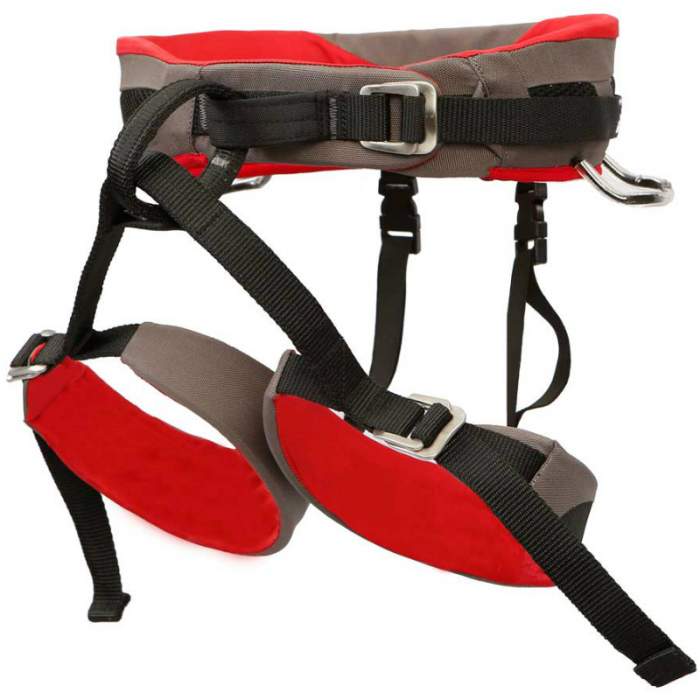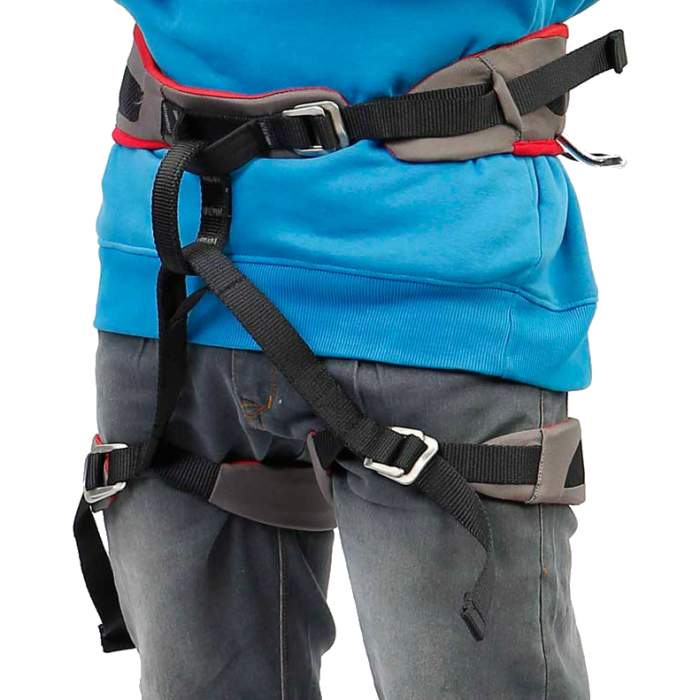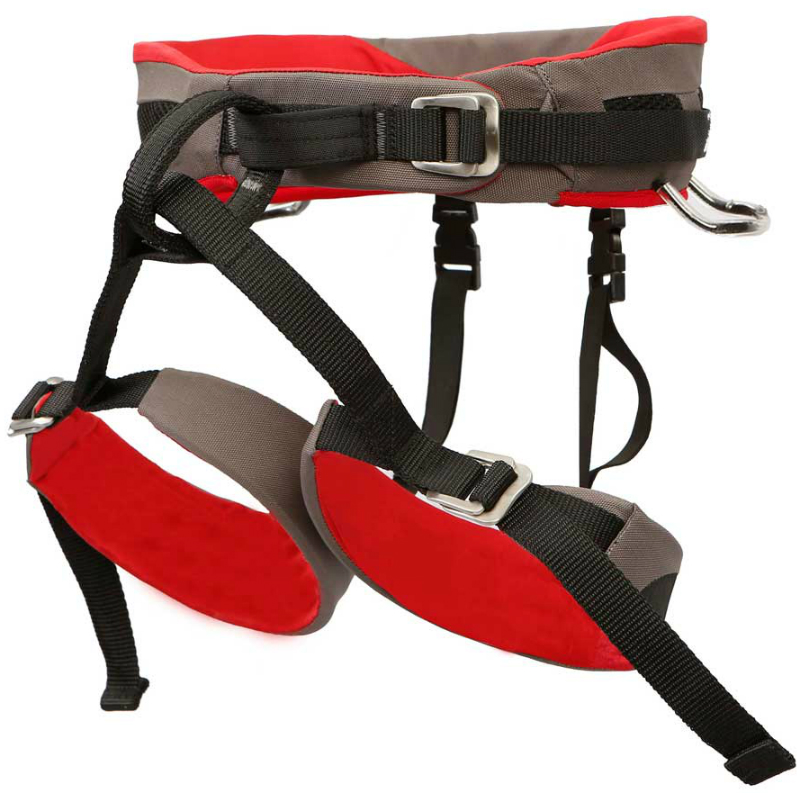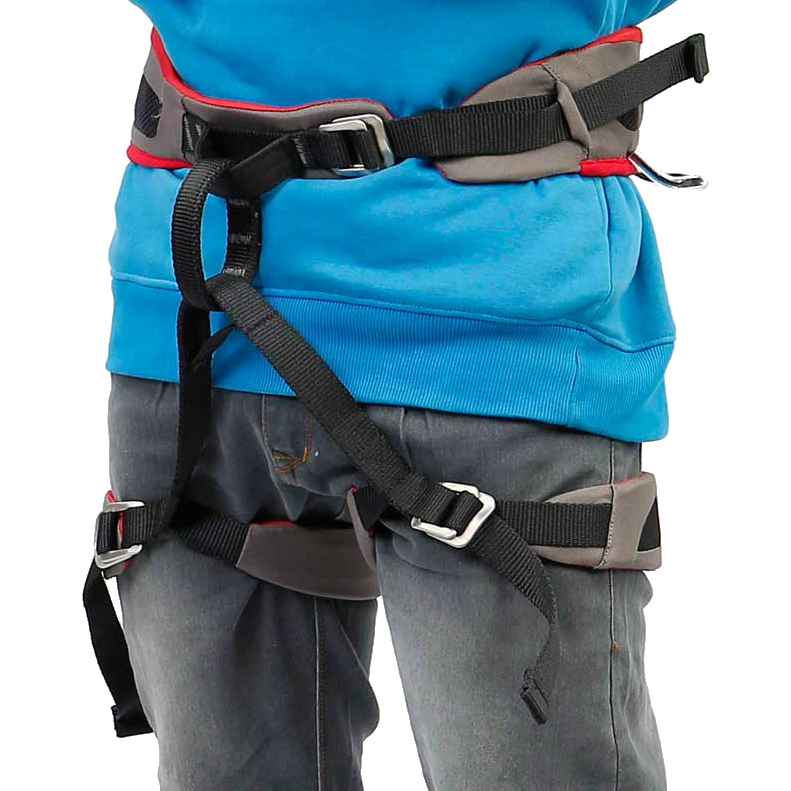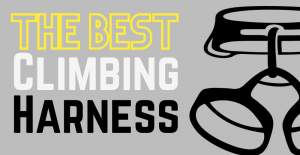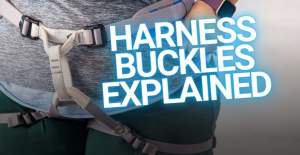SALTORO V2
Description
PEVA foam padding inside the waist belt and leg loops allows for excellent weight distribution and comfort while climbing
– Nylon sheathing on tie-in points retards the rate of wear and tear
– Back loop for hauling and four ergonomically placed gear loops for easy reach
– 23kN rated Stainless Steel buckles
– High tensile strength Nylon and climb-spec webbings
– Leg loops can be fully opened while wearing the harness with mountaineering boots and crampons
– Mesh carry pouch
– India’s first UIAA certified harness. This could be your ideal first harness when you take up rock climbing.
– Climbing and mountaineering harness best suited for sport climbing and single pitch climbs
– Padded waist belt and leg loops allow uniform weight distribution in addition to comfort
– 15kN rated belay loop and 10 kN rated waist belt.
– Recommended use: Sport Climbing, Rock and Ice. Not recommended for Trad Climbing
– Based on our personal experience and reviews from buyers, this harness is uniquely comfortable. If your climbing activity involves long periods of hanging in the same spot, then we highly recommend this harness.
Retail price
When you click a link below and then checkout online, no matter what you buy (climbing gear or not), we get a small commission that helps us keep this site up-to-date. Thanks!
Weight (g)  WeightIn grams, the weight, as stated by the manufacturer/brand. If there are differences in weight (due to multiple sizes or optional accessories) we'll list them here. The default weight is the middle-most size, often this is size M. | 450 g |
| Fit | Unisex |
| Sizes | S, M, L, XL |
Gear Loops  Number of Gear LoopsGear loops are used to hold gear (quickdraws, cams, etc) onto your harness. 4 gear loops is most common. 
0 - 1 Gear LoopsMost often on full body harnesses or guide/gym style harnesses. 2-3 Gear LoopsMostly found on lighter harnesses made for [ski] mountaineering or high-end sport climbing where weight is a high priority. 4 - 5 Gear LoopsThe standard/most common number for climbing harnesses. Perfect for sport and trad. More Than 6 Gear LoopsDesigned for long multi-pitch and big wall climbing, found on harnesses made to hold the maximum amount of gear. Worth ConsideringOccasionally, the number of gear loops will change on a harness model depending on the size. There could be 7 gear loops for the med/large but only 5 gear loops for the xsmall/small. In this case we list the highest number for the filters, and then write an explanation on the product page like, “Size S/XS can only fit 5 gear loops.” | 4 Gear loops |
Ice Clip Slots  Ice Clip SlotIce clipper slots are made to fit a carabiner that holds ice screws. These slots are generally only used by ice climbers but there is no disadvantage to having them on your harness. 
Less than 40% of harnesses will have ice clipper slots. And those harnesses will usually have 2 or 4 slots, often located next to, or between, the gear loops. | No |
| Belay / Tie-In | One Loop |
| Waist Buckle Type | Quick Adjust |
| Leg Buckle Type | Quick Adjust |
| Drop Seat | No |
Haul Loop  Haul LoopTrad climbers often look for a haul loop as they're intended to haul a rope (second line) or pack (while you climb the chimney). 
A haul loop can also hold shoes or other accessories. Although not the intended use, it is also commonly used to hold a chalk bag. | Yes (0kN) |
| Certification | CE, EN, UIAA |
| Size Chart | |
No reviews yet.
If you know of a good product video that should be here, let us know, and we'll put it up.
If you're looking for gear videos in general, check out our Vimeo and YouTube channels to see the newest gear.

